When it comes to growing a big, bountiful harvest of vegetables in pots, containers and raised beds, it all starts with planting in the best organic potting soil possible. And one of the easiest ways to do that is by creating your own right at home!
Popular vegetable plants like cucumbers, tomatoes and peppers are heavy feeders from the soil. Unfortunately, when these vegetables are planted into poor or tired soil, they end up with weak roots, stems and foliage. Which of course, leads to a disappointing harvest.
Plants absorb a large share of nutrients and moisture through their root system. In fertile soil that is full of organic matter, the roots are able to soak in the nutrients they need with ease.

Even better, they can expand rapidly, helping to creating a more extensive root system. And with more roots, there are more resources to bring more nutrients to the plant above.
But in poor soil, it can be difficult for roots to expand and grow. In fact, if soil is heavy, dense and clay-like, it actually can constrict the roots. In the process, the plants suffer from a lack of nutrition as the roots suffocate in the soil.
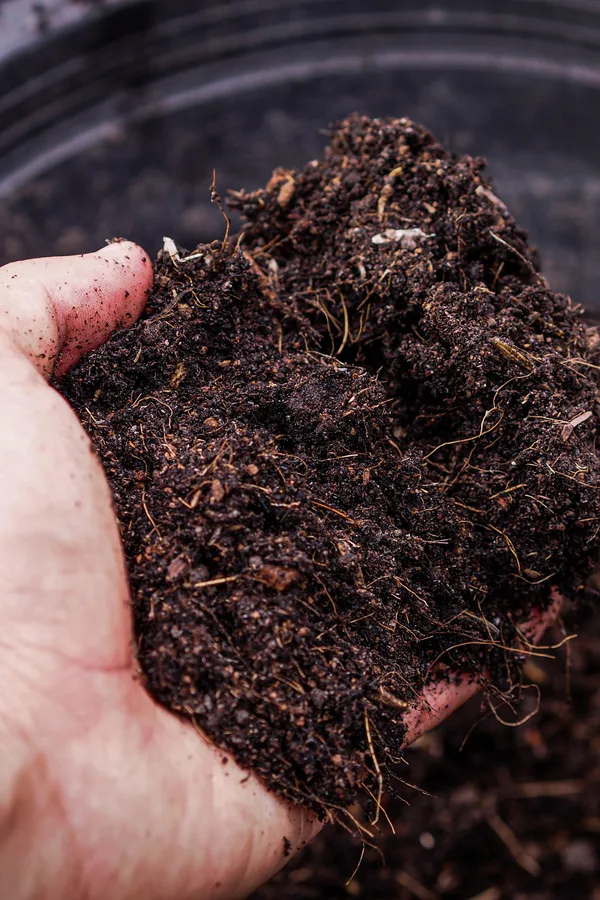
With that in mind, it’s easy to see why great potting soil is a must when it comes to growing vegetables. So how do you create great organic potting soil? Well, it’s actually easier than you might think!
Creating The Best Organic Potting Soil For Growing Vegetables Right At Home
Although there are a plethora of ready-to-grow commercial soil potting mixes available, many have big drawbacks. First and foremost, they can be extremely pricey. In fact, sadly, many cost more than it would to simply purchase your fresh organic vegetables at a farmer’s market!
But not only are commercial potting soils costly, many also contain a myriad of artificial fertilizers and additives.
Unfortunately, most potting soils are designed to power annual flowers in pots, containers and hanging baskets – and not for growing food. Because of that, they are filled with heavy doses of slow-release fertilizers and additives. All ingredients that are best kept away from food that will be consumed.
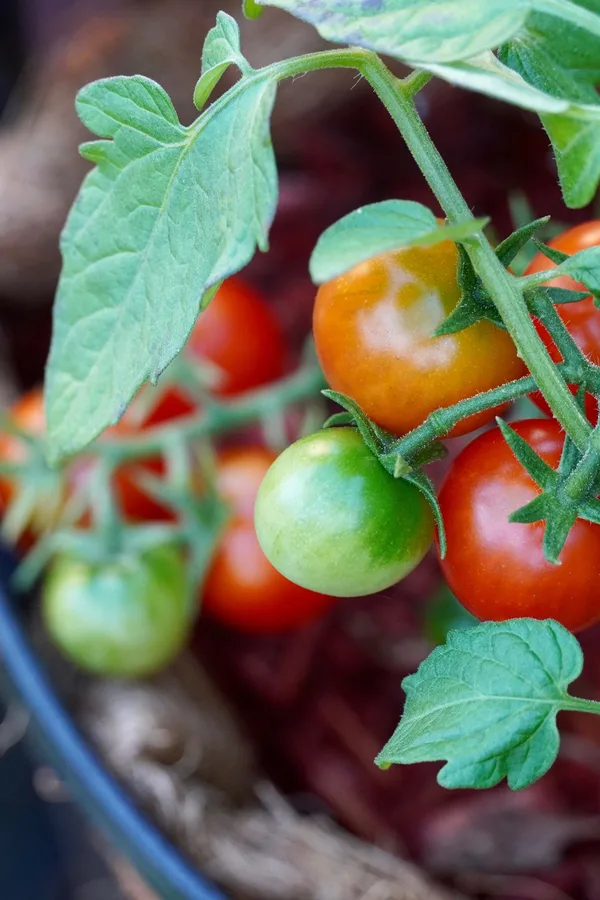
So why spend hard-earned money on manufactured “soil” when you can make great, all-natural soil right at home? Here is a look at the ingredients needed to create a great homemade potting mix for growing vegetables. We have also included a ratio chart at the end of the article for creating a great mix for growing.
The Ingredients And The “Recipe”
Nearly all vegetables, and annual and perennial flowers for that matter, flourish in rich, fertile soil. And by using the all-natural ingredients listed below, you can easily create an amazingly rich and fertile soil to power your plants all season long.
Although this specific recipe is made with growing vegetables in mind, it works incredibly well for growing vegetables too.
Top Soil
Every good potting soil needs a good base of traditional “soil”, and pulverized top soil is the perfect choice for this mix. It can be purchased in bulk or bags depending on the quantity needed. It is, however, important to make sure the soil is pulverized..
Pulverized simply means the soil has been ground down and is loose and free of any clumps. This is important when mixing with the other key ingredients below to keep the soil loose and free.
Compost
Compost is teaming with life, and is a must-have ingredient for creating the best organic potting soil for vegetables.
Pure compost hold as much as 10 times its own weight in water. That means it helps keep plants protected on hot days, and cuts down on watering too. But even more, compost is loaded with the minerals and nutrients plants need to grow and thrive.
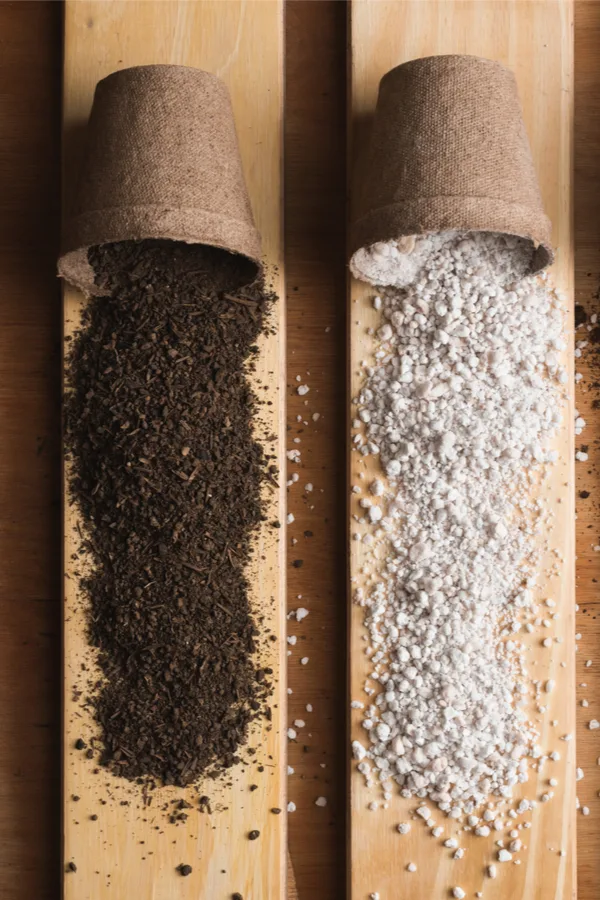
From calcium to phosphorous, nitrogen, potassium and more, compost charges up your potting soil with energy. If you don’t have a compost pile, you can purchase bagged compost for creating your mix. But with that said, if you don’t have a compost pile already, get one started now. Your plants and your garden will thank you! See: How To Create An Inexpensive Homemade Compost Bin
Perlite
Contrary to what some think, perlite is actually a naturally occurring, organic substance. It’s volcanic glass that has the ability when heated to puff out like popcorn.
When added to soil, the open pores of perlite help with water retention, drainage, and most importantly, keeping the soil mix light. Perlite also has a PH of 7 (neutral) – so it does not upset the balance of acidity in the soil. Along with compost, perlite keeps the soil loose and allows roots to grow freely. Product Link : 8 qt. bag of Perlite
Worm Castings
Worm castings are nothing more than the manure of worms. But are they ever incredible to use in creating a great potting mix for vegetables!
Worm castings are lightweight and work as the ultimate low and slow release fertilizer for vegetable plants. Plants that receive nutrients too quickly can overgrow their containers, and create more foliage than blooms and vegetables.
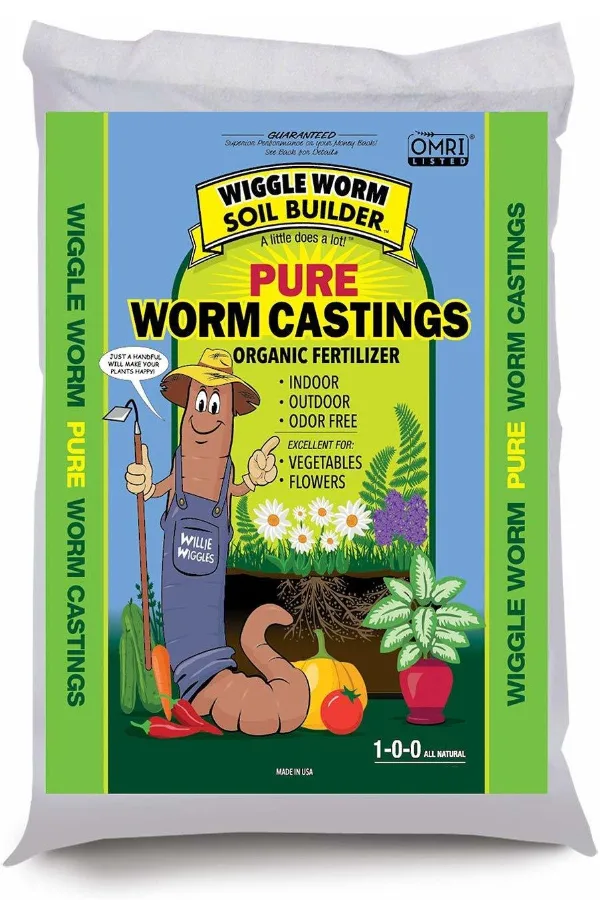
But worm castings release their energy and power slowly and help plants develop strong roots in the process. They really are the true “secret ingredient” in successful container plantings. And yes, they work just as well for flowers and perennials in containers too!
Coffee Grounds
Like worm castings, coffee grounds can add nutrients to your soil mix. Coffee grounds have long been known to be beneficial to plants. Not only do they contain nitrogen and other helpful minerals and nutrients, but they also help to create better soil structure.
Perhaps the best thing about coffee grounds are they are completely free. Just save them or have your friends save them after making their coffee – and mix them into your soil!
Crushed Egg Shells
And that leaves us with our final ingredient, egg shells. Egg shells add vital nutrients like calcium and other trace minerals to the soil. The calcium is important because it can help prevent blossom end rot on tomato and pepper plants. But it can actually help energize the soil for all vegetables, and is another great by-product free additive!
Mixing The Ingredients
For best results, use the following ratios when making your vegetable soil mix. You can scale up or scale down the ingredients to fit the soil mix you will need.
Ingredients
- 6 cups pulverized top soil
- 6 cups compost
- 2 cups of perlite
- 1 cup worm castings
- 1/2 cup of coffee grounds
- 2 to 4 crushed egg shells
As a final note, be sure you have good drainage in place for your containers. A few inches of gravel, wood chips or even a few larger rocks and stones placed in the bottom of each container can help excess water drain away from plants. In addition, be sure there are plenty of drainage holes at the bottom to let the water escape.
So here is to making the best organic potting soil mix for your vegetables! For more on growing vegetable in pots, check out our article How To Grow Cucumbers In Containers.
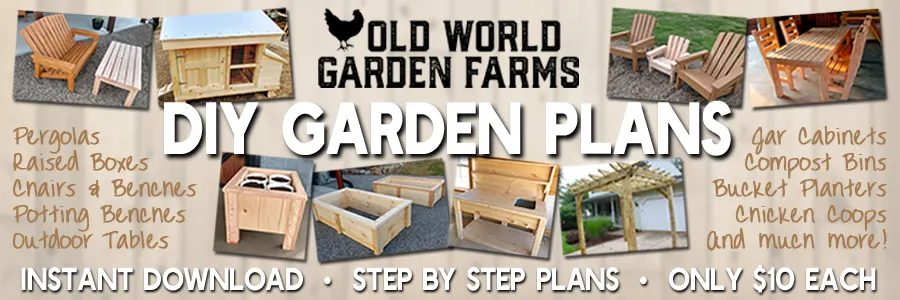
This Is My Garden is a website dedicated to spreading the love and knowledge of gardening around the world. We publish two new garden articles each week. This article may contain affiliate links.
